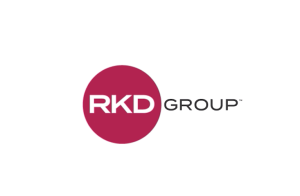First Class mail is hemorrhaging cash for the United States Postal Service, Do Not Mail legislation is on the rise around the country, and universal and six-day delivery could look a lot different in a few years.
There’s no shortage of issues for those in the mail industry to worry about, and they were all on the table at a conference sponsored recently by the Alliance of Nonprofit Mailers, a Washington, D.C.-based coalition of more than 300 nonprofits and commercial service providers.
"There are a lot of major issues looming for the postal system and they’re pretty much on us," said Tony Conway, executive director of the alliance. "Can you continue to be everything to everybody the way you’ve always been? Can you afford to? Everyone would like to but is it self-sustaining?"
Those types of questions should be answered, at least to some degree, by a report from the Postal Regulatory Commission (PRC) on universal service and the postal monopoly. The report came out of the Postal Accountability and Enhancement Act (PAEA), passed in December 2006, and is scheduled for completion by Dec. 20.
PRC Chairman Dan Blair said the body has an opportunity to provide "a seminal report" on universal service. Requests For Proposals were issued last November to help gather information for the report and the PRC plans to solicit comments in the coming months.
Congressman Danny Davis (D-Ill.), a member of the Subcommittee on the Federal Workforce, Postal Service and District of Columbia, said the Dec. 20 deadline for the PRC’s final report might be challenging, but stressed that "quality is more important than speed." The subcommittee, he promised, will look hard to maintain the Postal Service as a national service.
"I believe in universal service. I believe in six-day delivery," Davis said. "But I also understand you can’t get blood from a turnip…but you need to provide good wages. If we’re going to have universal service, we’re going to have to pay for it."
William Young, president of the National Association of Letter Carriers (NALC), said the key to keeping universal service and six-day delivery is Standard A mail, which two years ago surpassed First Class mail volume for the first time.
"First Class was the engine that drove growth the last hundred year," Young said, and accounting for two-thirds of the Postal Service’s fixed costs. After several years of 6- to 7-percent annual growth, Standard A (third class and bulk) now comprises more than 50 percent of all mail, he said. "If we lose Standard A mail, there’s no way we can keep universal service and six-day delivery."
First class single piece mail declined 4.5 percent last year, the ninth consecutive year it has dropped. Always the bread and butter of the Postal Service, First Class mail never declined from the Great Depression until 2000.
Legislators around the nation have picked up on the same idea of the telemarketing industry’s Do Not Call registry and the number of bills to create Do Not Mail registries has tripled the last few years.
Ben Cooper, a lobbyist with Williams & Jensen in Washington, D.C., is part of Mail Moves America, a coalition of about 50 associations and companies created in 2006 to combat Do Not Mail legislation. He said 15 states introduced bills last year, three times as many as just three years ago.
It’s an easy message to push for organizations like GreenDimes and Forest Ethics, Cooper said, and they’ve been fairly effective. Legislation is patterned after telemarketing bills, exempting political speech, nonprofits, and prior business relationships from the Do Not Mail registry.
The problem with the bills as Cooper described is that "advertising mail is not well defined, and there’s the question of whether mail is blocked to an individual or all mail to a particular address. Mailers would face fines of $500 to $5,000 per incident if they fail to recognize recipients who opt out, Cooper said, but whether that’s per incident or per mailing is undetermined as well.
Do Not Mail legislation should be taken seriously, said Robert Taub, chief of staff the past eight years to Congressman John McHugh (R-N.Y.), chairman of the Subcommittee on Postal Service and a key player in postal reform legislation.
PAEA didn’t deal with universal service, in a way, because it never defined it, said Taub. Without a definition — is it six-day service, First Class — it leaves open to question the cost, he said.
Focus groups initiated by the coalition indicated some 90 percent would opt-out, Cooper said, but when told about the potential impact on universal service, the figure dropped to zero. Those who don’t like mail didn’t say it was the environment, which ranked behind annoyance and identity theft as the top concerns of the focus groups, he said.
Sponsors have withdrawn support of their own bills in New York and Tennessee after being approached, Cooper said, adding that people usually step back and realize what a big part of the economy mail is. "It’s a jobs issues, it’s an economic issue," he said, encouraging nonprofits, along with "everyone in this postal food chain" to get involved.
Catalog Choice, an effort started seven months ago by environmental organizations, has had close to 10 million opt out by choice, Cooper said. "It’s not that we’re pro-junk mail," he sad, but rather, trying to stop the state regulation of mail.
"At some point we have to accept advertising is part of what we do and how we pay for things."
Cooper believes the worst of the state legislation is over and the coalition already is gearing up for 2009, but "all it takes is one state." He worries about states like Vermont — "because they do things like that" — and California. If a ballot petition had to be fought in California, Cooper estimates it would cost "tens of millions of dollars. That’s just what could happen; the dynamics in any state could change rapidly."
***
This article is from NPT Weekly, a publication of The NonProfit Times.
Subscribe to The NPT Weekly eNewsletter or any of our other enewsletters and get the latest news and ideas related to fundraising delivered to your inbox









